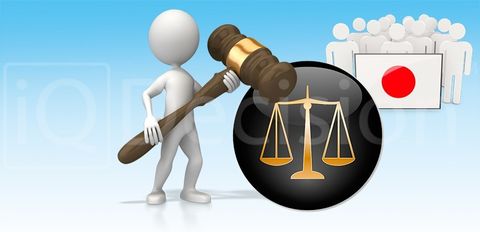Thinking about filing a lawsuit in Japan? Looking to settle a commercial dispute in Japan through arbitration? If so, then you should bear in mind that judicial powers in this country are vested in the High Court, district courts, domestic courts and general jurisdiction courts. In fact, courts are the ultimate arbitrators in all disputes.
Judges and Jurors
There are no jurors in Japan, which is why only judges can weigh up facts and render judgments. The parties may not demand that a presiding judge be replaced unless otherwise is specified in the Civil Code.
Deadlines for Filing Lawsuits
If you intend to file a lawsuit in Japan, you should keep in mind that there is a 10-year limit for contractual claims. There is also a 5-year limit for contractual claims stemming from commercial deals. There is a 20-year limit for tort claims, which is counted from the date an event triggering the claim took place, or a 3-year limit counted from the date damage was inflicted or the party responsible for inflicting the damage was identified.
Court may suspend the said limits by issuing an action or provisional disposition. In the event of partial claims, time limits may only be suspended if a lawsuit is filed within 6 months from the time a payment claim is made.
Filing a Lawsuit in Japan
To file a lawsuit in Japan, one needs to file a suit with a court that has a proper jurisdiction. The court notifies the parties of the commencement of proceedings by issuing a subpoena within 10 days after a lawsuit is filed.
Experts and witnesses provide oral testimony. Judges can be provided with documentary evidence during the hearing or preliminary hearing which is held once a month or once in a few months.
Looking for help with resolving a dispute in Japan? IQ Decision UK can provide you with legal advice on matters pertaining to international resolution of disputes.
Remedies
Under the Civil Code, actual damages are the most popular remedy in Japan. There are also other kinds of injunctions.
Enforcement
There are different procedures for enforcing money-related and non-money-related claims. Money-related claims are enforced by attaching the defendant’s assets. That is accomplished through acquisition of movable property via a court-issued declaration that the said property is attached. The property attached in such a way gets converted into funds via an auction.
As far as non-money-related claims are concerned, there can be different kinds of enforcement Once a decision is made on transference of property rights, the court or custodian will seize the property and hand it over to the plaintiff.
Public Access
If you need to resolve a commercial dispute in Japan, you should keep in mind that oral hearings are held publicly, with the exception of cases where commercial secrecy needs to be protected in relation to patents and copyright laws.
Indemnification
There is no insurance covering all and partial proceedings-related costs sustained in relation to the proceedings.
Class Action
As per Japanese legislation, class actions are prohibited, which is why each individual is to be a separate plaintiff.
Appealing a Verdict
Once court proceedings are underway in Japan, verdicts handed down by district courts can be appealed in the High Court. The reasons for filing an appeal include the 1st judge making a factual mistake or mistake in applying a law. The High Court will look into appeals based on the mistakes in interpreting the law and other constitutional infringements.
Recognizing Verdicts Handed Down by Courts Abroad
Recognizing and enforcing verdicts handed down by foreign courts is done by courts with respect to claims received in a foreign court, provided that:
- the jurisdiction of such court is recognized as per Japanese legislation and applicable international conventions;
- the defendant got a notification about proceedings abroad and made a voluntary appearance in the court abroad;
- such a verdict or proceedings does not run contrary to Japan’s public policy
- foreign courts recognize verdicts handed down by Japanese courts and vice versa
Arbitration in Japan
The new law on arbitration that was passed in Japan in 2004 requires arbitration agreements to be made in written form.
Appointing Arbitrators
Prior to initiating an arbitration in Japan, you should keep in mind that the majority of commercial arbitration institutions in Japan appoint arbitrators from amongst their own arbitrators. The parties are also allowed to appoint an arbitrator that is not included on the list of experts. The list of arbitrators contains not only lawyers but also other experts, such as business and technical experts.
ADR in Japan
As far as international commercial transactions are concerned, arbitration is the most popular form of ADR. As for domestic disputes, the parties prefer to resolve disputes through mediation.
New types of ADR have recently been introduced in Japan, including financial ADRs that are meant to assist in resolving disputes between financial institutions and their clients.
Legal advice
IQ Decision UK lawyers are closely monitoring all changes in Japanese legislation pertaining to resolving international disputes and initiating arbitrations in Japan. Our experts can provide mediation services in Japan, help resolve a dispute through arbitration in Japan, as well as provide legal support in matters pertaining to negotiations between parties in Japan.

















